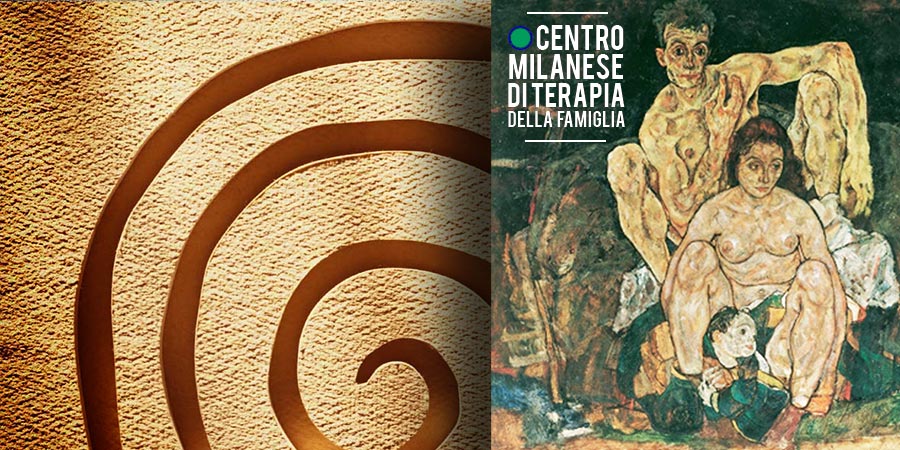Systemic Family Psychotherapy
At the Milanese Centre of Family Therapy, situated in Via Leopardi 19, Milan, there is an active team of Psychotherapists that address their efforts towards individuals who, for different reasons, find them-selves living an emotional and a relational discomfort.
Systemic revolution
Family therapy enabled the systemic revolution. Four psychoanalysts undertook the adventure of changing psychotherapy. After the Basaglia revolution, the focus of Luigi Boscolo’s and Gianfranco Cecchin’s approach becomes the alienation present in middle class families that emerged through a novel form of protest and rebellion within the family as well as towards the opulent society (Pietro Barbetta – Anorexia and hysteria [Anoressia e Isteria] Raffaello Cortina). Indeed, starving becomes the mode through which young women express, in a silent manner, the social disorder of the bourgeois in their family, to the point of devastating it. It is the discreet charm.
Family therapy becomes the favoured modality of treatment for disorders termed by psychiatry as psychotic (see Paradox and Counterparadox [Paradosso e Controparadosso] Selvini, Boscolo, Cecchin, Prata, curated by Pietro Barbetta- Raffaello Cortina) and feeding disorders, however, it is quick to extend it self to other realms too (Boscolo Cecchin, Hoffman, Penn, Clinical Systemic [La clinica sistemica Italian edition curated by Paolo Bertrando]- Bollati).
A little history
Boscolo and Cecchin both completed their education in New York and had the opportunity to observe the initial unfolding of family therapy conducted by the psychoanalyst Nathan Ackerman as well as being exposed to the teachings of Silvano Arieti concerning psychosis. Once returned to Milan, towards the end of the sixties, they start their psychoanalytic practice together with Mara Selvini Palazzoli and Giuliana Prata. However, soon enough they detached them-selves from this team so to follow an approach inspired by Gregory Bateson and by second order cybernetics. Subsequently, they moved away from the Strategic approach, just how Bateson had done with the team of Palo Alto before the formation of the Mental Research Institute, of which he later became a consultant of.
Gregory Bateson in Milan
Boscolo and Cecchin become interested in understanding how Bateson, opposed to his conscious goal, would have created a family therapy in his times, in our times. Thus, they tired to follow the indications of the most prominent epistemologists that had followed Bateson: Heinz von Foerster’s theory of observation enabled the two therapists to create a training institute where students observe the therapeutic encounters and question the two clinical experts, that are so compelled to think and think again about the families they are meeting, in a singular manner, without any preconstructed strategic schemas. The theory of autopoietic systems aided departure from the notion that a system may be instructed from the outside, it enables the thought of a system’s perturbations; the theory of systems distance from balance sustains the thought that a system’s homeostasis is not absolute and that in certain circumstances structures become dissipative, they modify them-selves rapidly changing from one state to another in an irrevocable manner (See Sistemica, by Umberta Telfener e Luca Casadio, Bollati).
An opening to different experiences
With time, the influence of the Approach of Milan spreads and throughout the globe new ideas about therapeutic conduct develop (the team reflects on the externalization of the symptom, the theme of therapeutic resonance, the critiques of the concept of family homeostasis, etc.). These are then introduced, discussed and practiced in Milan, without any one in particular becoming absolute. Thus, prompting the novel encouragement, the core idea of the Milan Approach: never fall too much in love with one’s own hypothesis. Theory is fine nonetheless it should not impede observing and listening to what a family expresses, with their bodies and what they recount with their voices. Indeed, these are the fundamentals for our non-oppressive and non-authoritarian practices.


Enrolment and additional information
For enquiries and appointments please contact Ms. Antonella Boscolo by calling:
Opening hours: Monday to Friday 9.00-13.00 & 14.00-17.00.
Tel: 02 4815350 | 348.00.32.632
Email:segreteria@cmtf.it



